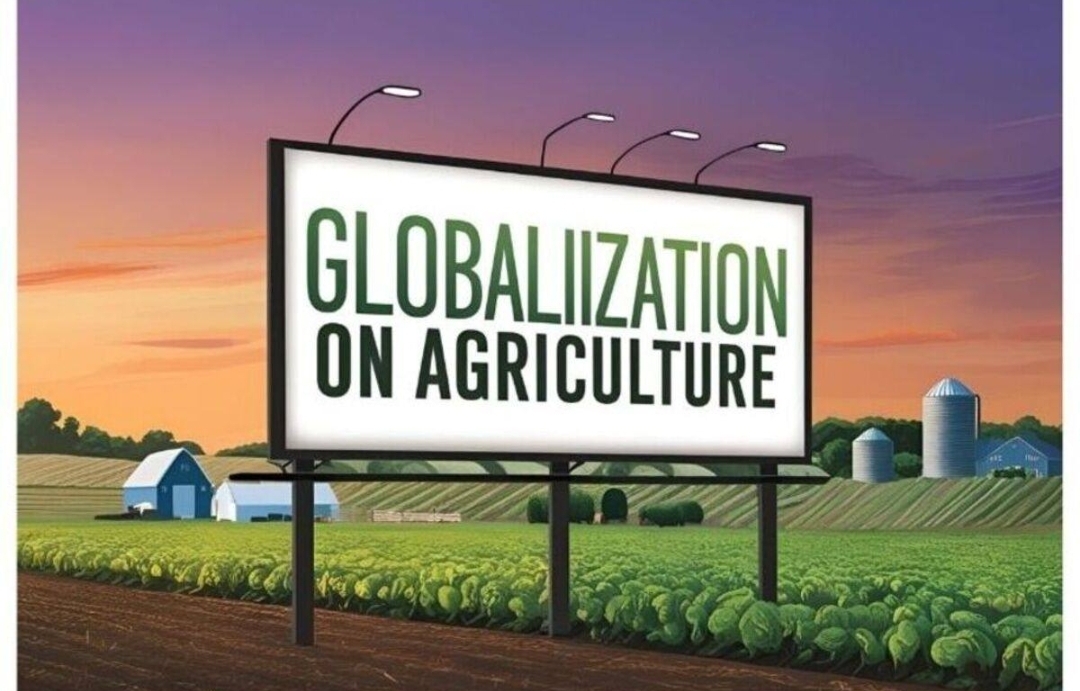Globalization has transformed the way the world produces, trades, and consumes food. The increasing interconnectedness of economies and societies has created new opportunities and challenges for local agriculture. This article explores the impact of globalization on local agriculture, examining both the benefits and drawbacks of this phenomenon.
Benefits of Globalization for Local Agriculture
- Market Access: Globalization has opened up new markets for local agricultural products, enabling farmers to sell their produce to a wider audience. This has increased income opportunities for farmers and contributed to economic growth.
- Technology Transfer: Globalization has facilitated the transfer of technology and knowledge from developed countries to developing countries. This has improved agricultural productivity and efficiency, enabling farmers to produce higher-quality crops.
- Investment and Capital: Globalization has attracted foreign investment in agriculture, providing much-needed capital for infrastructure development, research, and extension services.
Drawbacks of Globalization for Local Agriculture
- Competition from Imported Products: Globalization has led to an influx of imported agricultural products, which can compete with local produce. This has put pressure on local farmers to reduce prices, potentially threatening their livelihoods.
- Loss of Traditional Practices: The adoption of modern agricultural technologies and practices has led to the loss of traditional farming methods and crop varieties. This erosion of biodiversity can have long-term consequences for food security and ecosystem health.
- Dependence on Global Markets: Local agriculture has become increasingly dependent on global markets, making it vulnerable to fluctuations in international prices and demand.
- Environmental Concerns: The expansion of agricultural production for global markets has led to environmental degradation, including deforestation, water pollution, and soil erosion.
Impact on Small-Scale Farmers
Small-scale farmers are particularly vulnerable to the impacts of globalization. They often lack the resources and capacity to compete with large-scale producers and imported products. This can lead to:
- Marginalization: Small-scale farmers may be pushed out of the market, leading to loss of livelihoods and income.
- Poverty: The decline of small-scale farming can contribute to poverty and food insecurity, particularly in rural areas.
Sustainable Solutions
To mitigate the negative impacts of globalization on local agriculture, sustainable solutions are needed. These include:
- Support for Small-Scale Farmers: Governments and organizations can provide support to small-scale farmers, including training, credit, and market access.
- Agroecology: Agroecological practices can promote sustainable agriculture, improving soil health, biodiversity, and ecosystem services.
- Local Food Systems: Strengthening local food systems can reduce dependence on global markets and promote food sovereignty.
- Policy Reforms: Policy reforms can help protect local agriculture, including tariffs, subsidies, and trade agreements that favor local producers.
Conclusion
Globalization has brought both opportunities and challenges to local agriculture. While it has opened up new markets and improved productivity, it has also led to competition from imported products, loss of traditional practices, and environmental concerns. To ensure the sustainability of local agriculture, it is essential to support small-scale farmers, promote agroecology, and strengthen local food systems. By adopting sustainable solutions, we can promote food security, improve livelihoods, and protect the environment.
Meta AI response: The Impact of Globalization on Local Agriculture Globalization has transformed the way the world produces, trades, and consumes food. The increasing interconnectedness of economies and societies has created new opportunities and challenges for local agriculture. This article explores the impact of globalization on local agriculture, examining both the benefits and drawbacks of this phenomenon. Benefits of Globalization for Local Agriculture Market Access: Globalization has opened up new markets for local agricultural products, enabling farmers to sell their produce to a wider audience. This has increased income opportunities for farmers and contributed to economic growth. Technology Transfer: Globalization has facilitated the transfer of technology and knowledge from developed countries to developing countries. This has improved agricultural productivity and efficiency, enabling farmers to produce higher-quality crops. Investment and Capital: Globalization has attracted foreign investment in agriculture, providing much-needed capital for infrastructure development, research, and extension services. Drawbacks of Globalization for Local Agriculture Competition from Imported Products: Globalization has led to an influx of imported agricultural products, which can compete with local produce. This has put pressure on local farmers to reduce prices, potentially threatening their livelihoods. Loss of Traditional Practices: The adoption of modern agricultural technologies and practices has led to the loss of traditional farming methods and crop varieties. This erosion of biodiversity can have long-term consequences for food security and ecosystem health. Dependence on Global Markets: Local agriculture has become increasingly dependent on global markets, making it vulnerable to fluctuations in international prices and demand. Environmental Concerns: The expansion of agricultural production for global markets has led to environmental degradation, including deforestation, water pollution, and soil erosion. Impact on Small-Scale Farmers Small-scale farmers are particularly vulnerable to the impacts of globalization. They often lack the resources and capacity to compete with large-scale producers and imported products. This can lead to: Marginalization: Small-scale farmers may be pushed out of the market, leading to loss of livelihoods and income. Poverty: The decline of small-scale farming can contribute to poverty and food insecurity, particularly in rural areas. Sustainable Solutions To mitigate the negative impacts of globalization on local agriculture, sustainable solutions are needed. These include: Support for Small-Scale Farmers: Governments and organizations can provide support to small-scale farmers, including training, credit, and market access. Agroecology: Agroecological practices can promote sustainable agriculture, improving soil health, biodiversity, and ecosystem services. Local Food Systems: Strengthening local food systems can reduce dependence on global markets and promote food sovereignty. Policy Reforms: Policy reforms can help protect local agriculture, including tariffs, subsidies, and trade agreements that favor local producers. Conclusion Globalization has brought both opportunities and challenges to local agriculture. While it has opened up new markets and improved productivity, it has also led to competition from imported products, loss of traditional practices, and environmental concerns. To ensure the sustainability of local agriculture, it is essential to support small-scale farmers, promote agroecology, and strengthen local food systems. By adopting sustainable solutions, we can promote food security, improve livelihoods, and protect the environment.

